Blackhill, in the north-east of Glasgow, is flanked on one side by the M8 motorway and the M80 on the other. It’s a food desert, the name given to an urban area in which it is difficult to find or buy affordable or good quality fresh food.
St Paul’s Youth Forum was set up in the area in 1997 to tackle the problems young people face through exercise, healthy eating and education programmes.
Blackhill’s Growing community garden was established by St Paul’s with a simple mission: to eradicate food insecurity. They bring the community together through a number of activities revolving around growing, cooking and eating.
“We have a community garden with three polytunnels, several raised beds, chickens and a large community orchard maintained through regular volunteer sessions. We also run workshops all year round to engage children and young people in growing,” explains community growing coordinator Joe Lowit.
It’s hard to keep up with their raft of events, markets and projects. Three days a week they run a vegetable ‘barra’ (Scots for wheelbarrow) in which fresh fruit and vegetables are sold at wholesale cost, subsidising prices for those in need. They also give away their own produce, eggs from their flock of laying hens, jam from their own soft fruits and seasonal honey.
“It’s incredibly important. A lot of the glue of the community is built around social spaces involving food, and when that’s absent, people suffer,” Lowit says, highlighting that the only other social spaces in the area are pubs.
They run community meals, free and open to anyone, which have been expanded from twice to four times weekly due to the cost-of-living crisis. These include a full sit-down meal, a lunch club run by the community and an evening when young people come and cook pizza in a woodfired oven. Alongside this, they work with four local schools and a nursery to provide education as part of the curriculum.
South of the city is the Wash House Garden, hidden away in the ex-industrial area of Parkhead, which ranks fifth highest in the Scottish Index of Multiple Deprivation.
A lot of the glue of the community is built around social spaces involving food. Joe Lowit, community growing coordinator at Blackhill’s Growing.
Bypassing supermarkets, this agroecological garden grows fruit and veg for 35 households and a few food businesses from spring through to autumn. They also run workshops on food growing and cooking, free community meals and gardening sessions twice a week.
Founder Max Johnson explains: “Anyone is welcome, you don’t have to be fit or able bodied, we have people from every walk of life.
“We have a joint lunch, everyone brings food to share and we sit down and eat a meal; it’s core to us – we feel like a family.”
But running the garden isn’t without its difficulties. “It’s really hard to make money from growing veg – we knew that but just decided to give it a go,” Johnson explains.
“I’m in it because it’s environmentally good, not to make money, but we need to reconcile that with the need to make money and be self-sufficient. It’s a tricky balance,” he adds.
The team at Wash House has difficulties in directing support, as many won’t divulge that they are struggling or need help with the cost of a veg box. Even then, a half price box remains too expensive for many. In the future they hope to work with partnership organisations that can refer individuals in need.
Soon they will be launching a Crowdfunder to cover community activities, employ community gardeners, cover the cost of infrastructural improvements and increase outreach work to reach more people.
“We still really want to push for providing something for lower income households, but frankly, my opinion is that the price of food is artificially low,” says Johnson.
“People need to be paid a fair wage. A lot of food in our system is produced in slave labour,” he adds.
“It’s not a small market garden’s responsibility to provide discounted food, but it feels like we need to do something given the level of food poverty. On one hand we have a conscience, but also it’s not our responsibility to solve this, and nor should it be.”
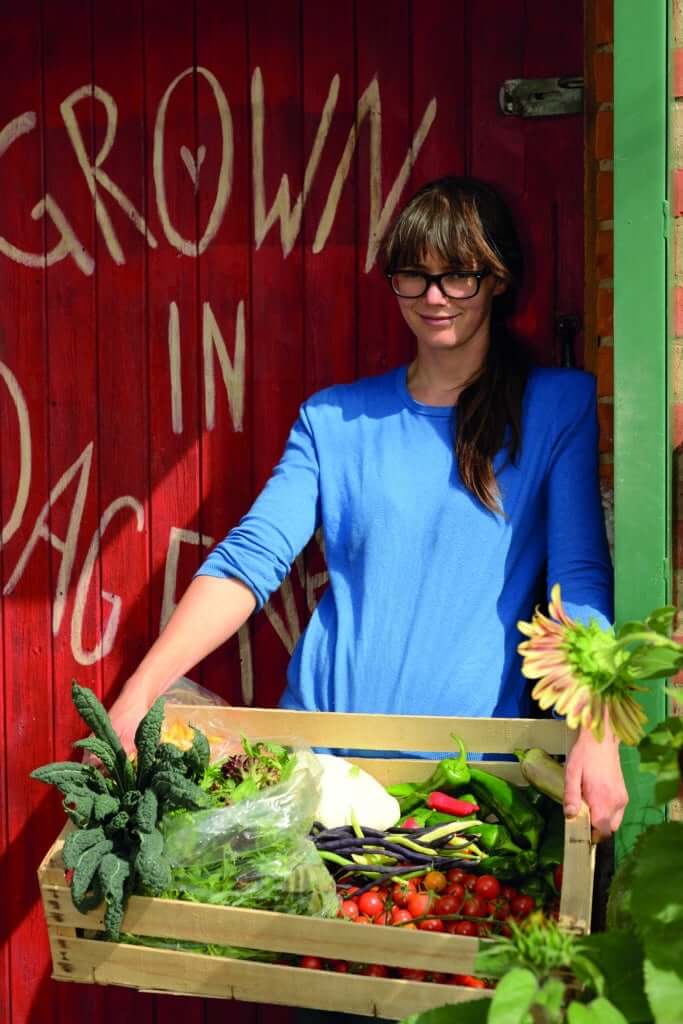
A similar model to the Wash House Garden operating at a larger scale can be found at Dagenham Farm, east London, which grows organic produce sold through a fruit and veg bag scheme.
Operating since 2012, the farm produces around five tonnes of veg every year. It grows near to areas of population density and helps to engage local people in food growing. The 1.7-acre farm shows what can be achieved at relative scale on the fringes of cities. Head grower Alice Holden explains: “Growing Communities, which Dagenham Farm is part of, allows access to food, supports farmers by paying them fairly and allows easy means to provide farmers with fair pay and a logistically viable market through a veg box scheme and farmers’ markets.
“I couldn’t supply supermarkets because of the prices they’d offer me – Growing Communities is a not-for-profit giving money back to the farmers, allowing the farmers to keep growing and going and creates a different system which has been going since the 90s,” she adds.
“It shows there is a viable alternative: it’s a more direct way of paying people. They are able to pay farmers a fair price because it’s a not-for-profit, it’s not being syphoned off but being redistributed in a healthy, agroecological way.
“The truth is, it costs more to produce organic food, which isn’t subsidised; it is fairly priced, but it isn’t the cheapest on the market.
“We also give food to food banks and people can donate bags as well. We try to make it as affordable as possible but have to make sure it’s fair,” she adds.
It’s not a small market garden’s responsibility to provide discounted food, but it feels like we need to do something given the level of food poverty. Max Johnson, founder of Wash House Garden.
The UK suffers from low levels of food security, and imports around 46 per cent of the total food it consumes. Urban agriculture therefore offers untapped potential in offering sustainable, affordable and nutritious food to those living within cities.
Research shows urban farms could supply up to four times the amount of fresh fruit and vegetables that the UK currently imports. The recent tomato and salad shortage only highlights the need for the UK to grow more of its own produce.
Food insecurity can lead to poorer diet, stress and poor health outcomes. Urban agriculture, on the other hand, can improve access to fresh food, while developing skills, social connections and wellbeing.
But despite this potential, and the best efforts of growers in urban communities, there is a tension between the desire to provide affordable food to local communities and the labour-intensive nature of small-scale farming.
Add to this the stark truth that in 2020-21, around one in five people in the UK were living in poverty (equivalent to 13.4 million people), according to the Joseph Rowntree Foundation.
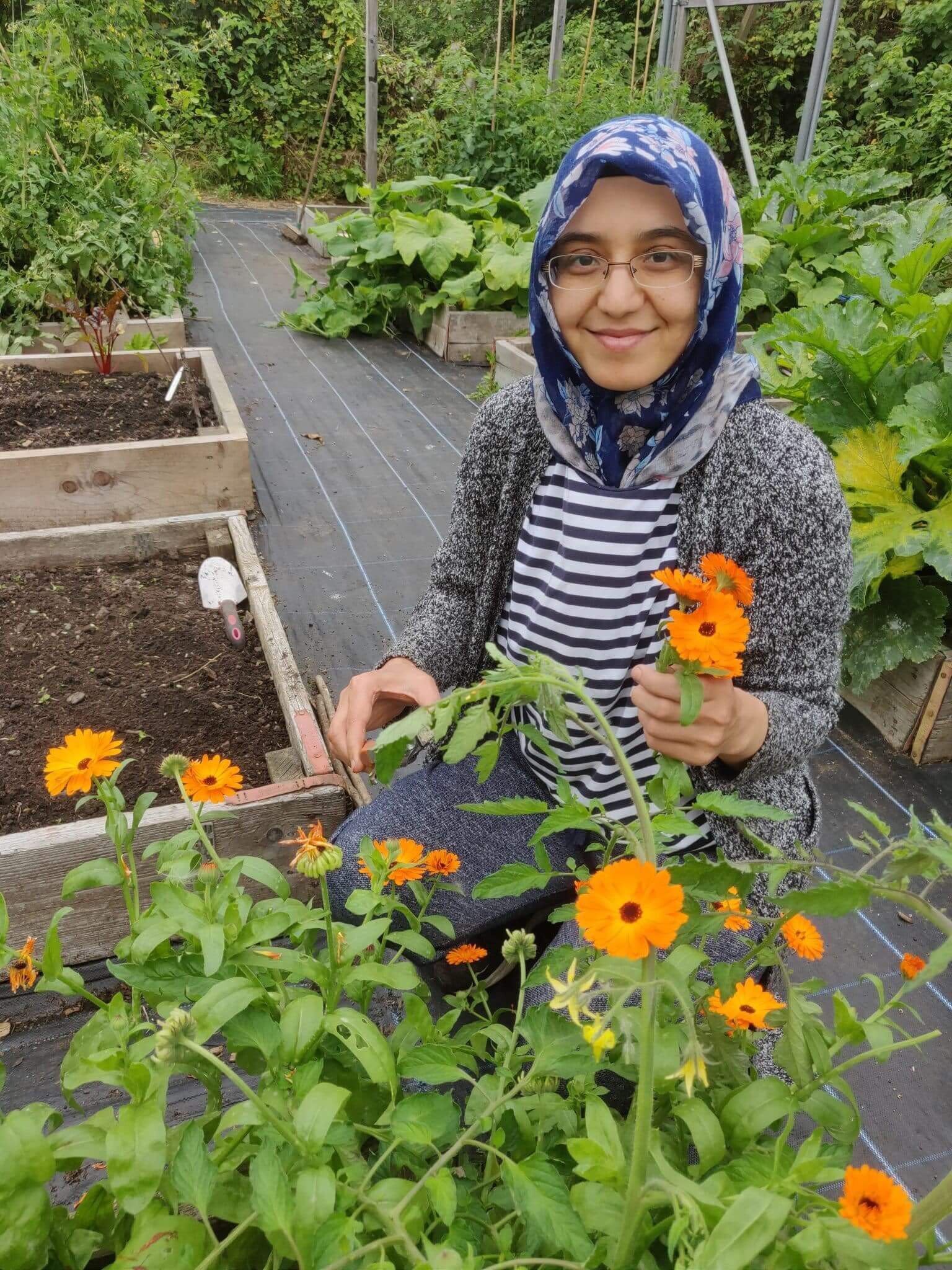
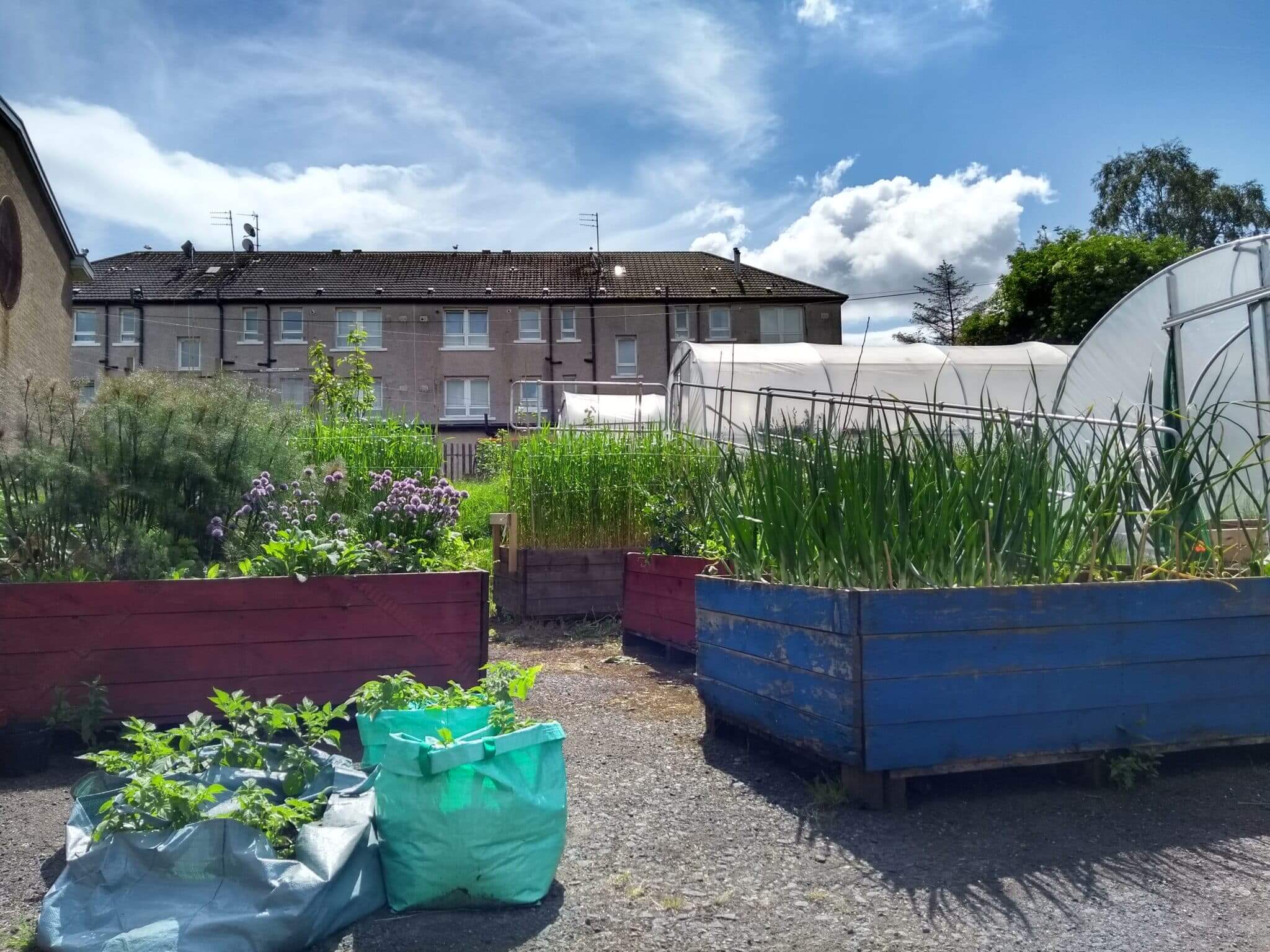
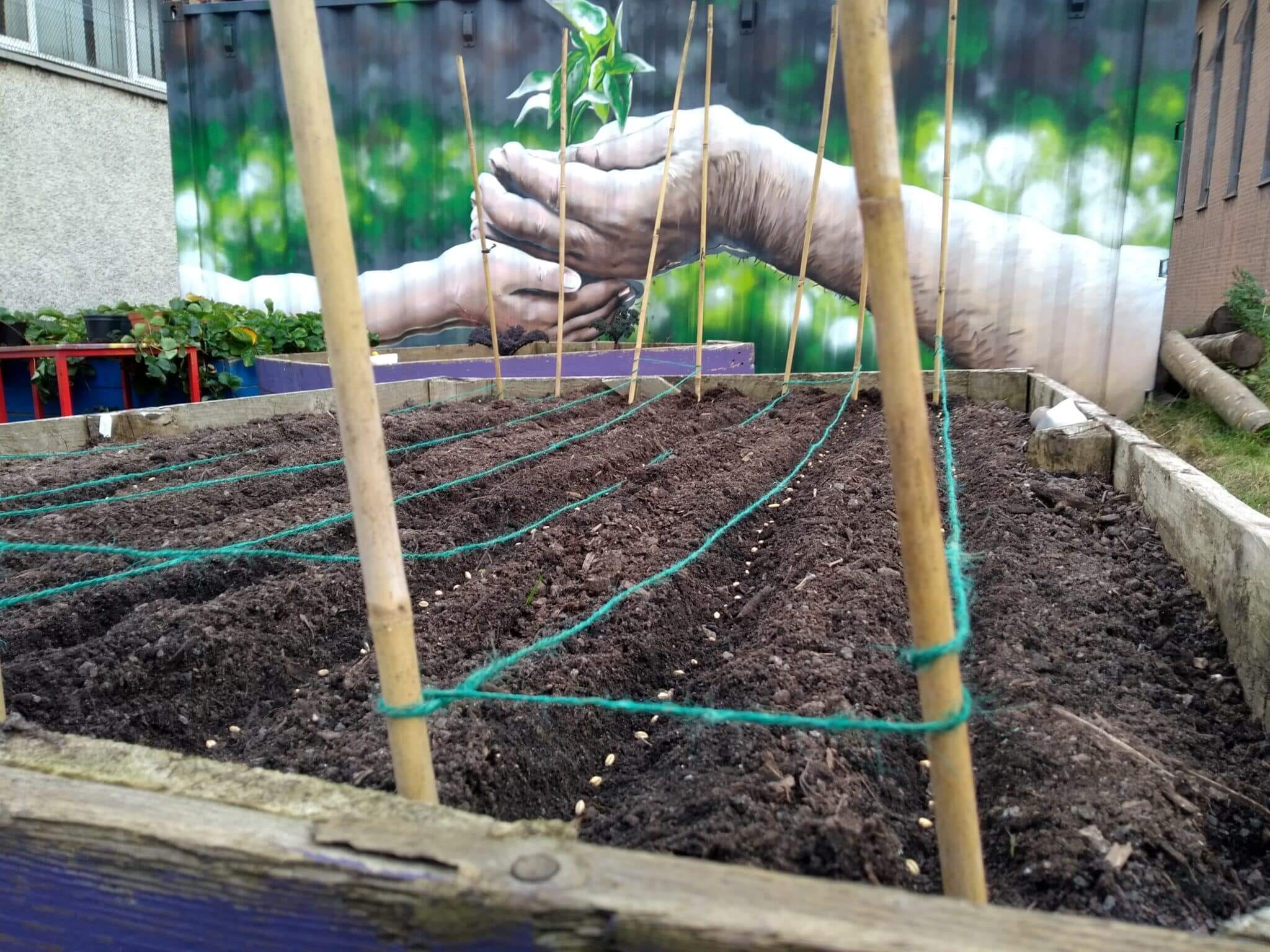
North Glasgow’s Blackhill is at the sharp end, and Lowit has seen food insecurity ramp up recently.
“Something that has become more and more necessary is our community larder: a help-yourself food bank that is free to all without referrals, with old supermarket food alongside food from the garden. Sadly it’s the busiest it’s ever been at the moment,” he says.
“Car ownership isn’t high in Glasgow – so people pay a poverty premium in public transport to buy fruit and veg, which is compounded when you consider people who have poor health, or the elderly population in Blackhill who really benefit from having the community food barra near enough that they can walk to it,” he adds.
Jonathan Pollard is the director of Horton Community Farm, situated in the heart of urban Bradford, where they lease one third of a 5.5 acre allotment site. Rather than focus on scaling up food growing, their focus is on increasing access to green space and using food growing for social and horticultural therapy. They run free sessions for refugees, asylum seekers, carers, children, and those living with mental health difficulties.
“We grow food on a small scale, which is a long way from commercial viability, owing to a lack of enough building space, inadequate plumbing, and the time and effort required in bringing enough land into production,” he explains.
Ensuring lower income communities within the city have access to locally grown food remains a goal they are working towards in the long term.
“Providing affordable, local food was one of the main drivers of our project early on, 14 years ago, as we sought to regenerate an allotment site that had suffered decades of decline,” Pollard explains.
“Producing local food organically and with little input from machinery is very labour intensive, and making the leap to this being a profitable part of a business is difficult.
“We look to one day running a Community Supported Agriculture (CSA) scheme with fees on a sliding scale related to people’s income.
“Obviously, buying food from a supermarket is very disconnected from the slow, precarious process of growing food,” he adds. “Through our project, we nurture an appreciation of this process and demonstrate the huge satisfaction of growing and eating your own fresh produce, while also revealing the difficulties that the vagaries of the seasons bring.”
Research shows urban farms could supply up to four times the amount of fresh fruit and vegetables that the UK currently imports.
One project increasing access to affordable good food is Bridging the Gap, coordinated by sustainable food alliance Sustain. It aims to make agroecological food accessible to all, particularly those on a low income, with an initial three-year grant of around £1.5 million.
This, Sustain’s programme director Sarah Williams argues, feels “more relevant than ever, following the climate emergency, years of increasing household food insecurity, the widening of health and income inequalities and now a cost-of-living crisis.”
In Tower Hamlets, fresh fruit and vegetables are being prescribed to low-income families in a year-long pilot aimed at tackling poverty-related hunger and health inequalities, co-funded by Bridging the Gap partner Alexandra Rose Charity, along with the local council and health partnership.
The ultimate barrier to making nature and climate-friendly foods accessible to people on lower incomes is the high rate of poverty here in the UK, as well as the higher relative costs associated with agroecological food growing.
Projects across the country are showing that a more sustainable and equitable food system is not only possible, but essential.
First though, we must tackle the unacceptable levels of poverty that too many in the UK face today.
This article was initially published in the spring-summer edition of Wicked Leeks magazine. You can read the full magazine online for free.

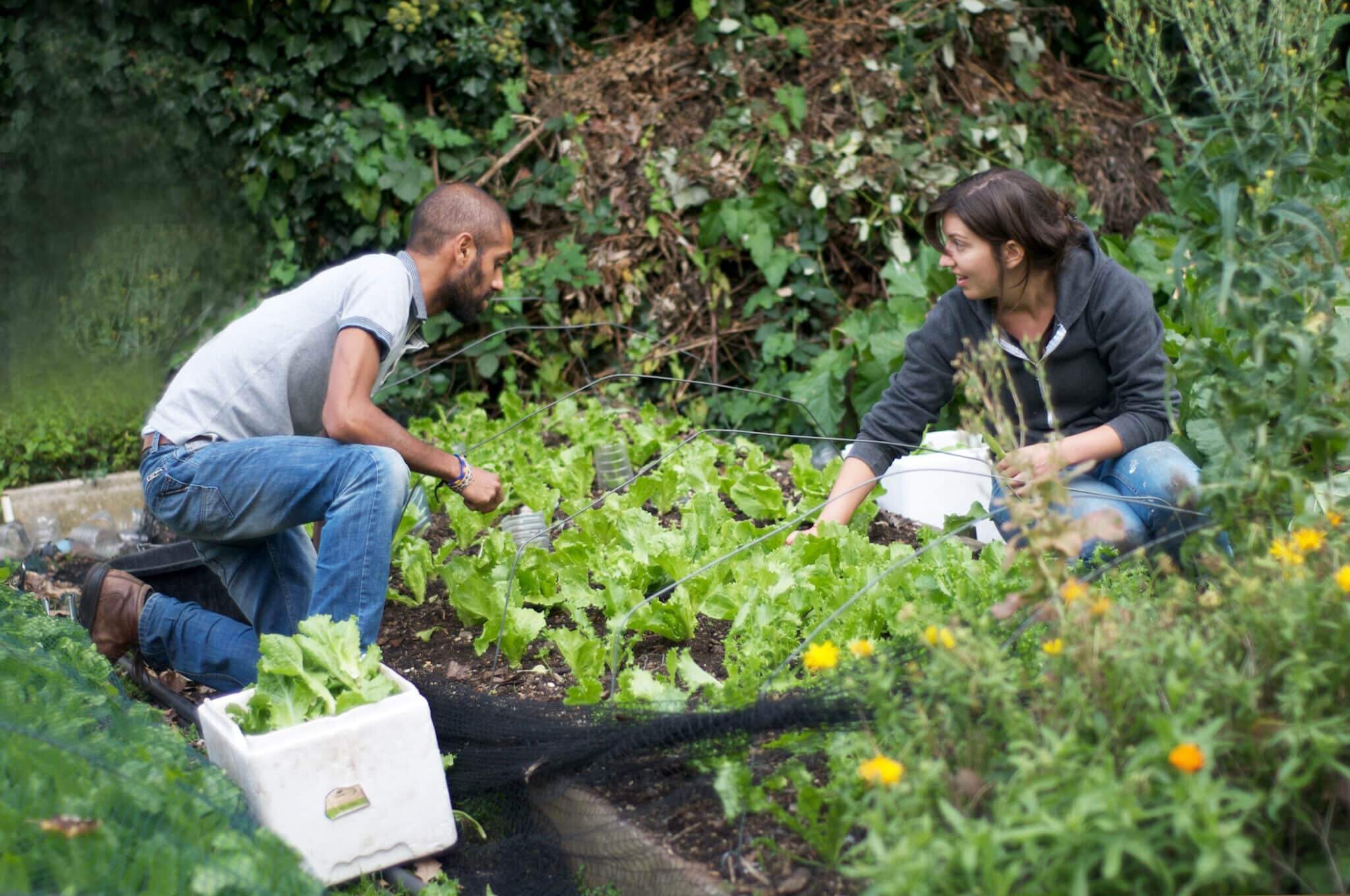







0 Comments